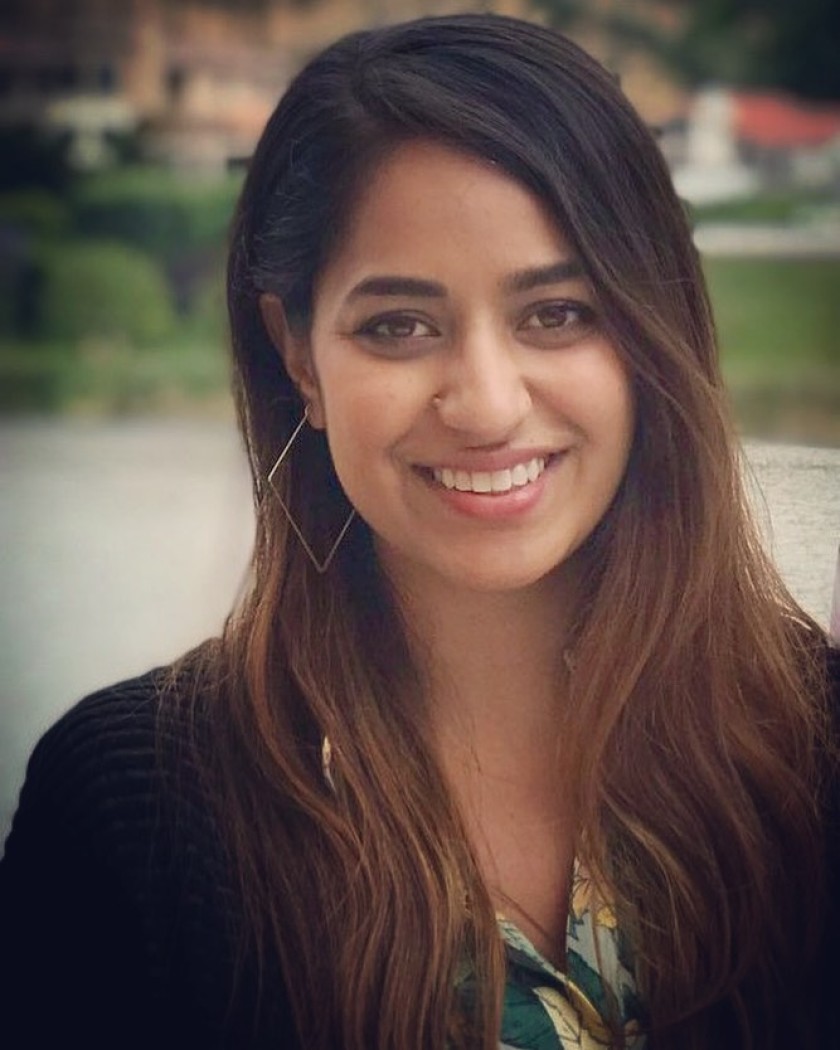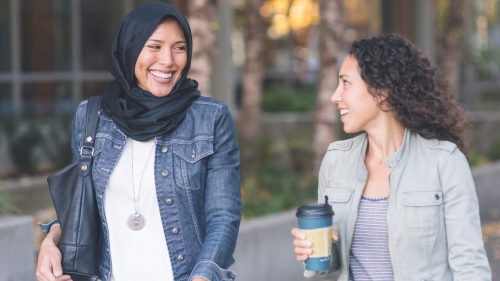Liyna Anwar: Waged Public Cancer Fight, Dies at 30

Liyna Anwar, a rising journalist who helped The Times expand its digital footprint and waged a public fight to save her own life, has died of complications from acute myeloid leukemia.
Anwar’s efforts to find a donor match underscored the frustratingly high odds that people of South Asian descent face in finding a potentially lifesaving stem cell transplant. Thousands joined a social media push to find a donor for Anwar.
Surrounded by family, Anwar died March 26 at the City of Hope in Duarte, just weeks after the launch of “Asian Enough,” a Times podcast she produced. She was 30.
Anwar was born Sept. 21, 1989, in Mission Viejo. Even as a young girl she had boundless curiosity. A foodie with an adventurous palate, she took to journalism while studying at UCLA, where she majored in anthropology. “She had a way of connecting with people and drawing people in,” said cousin Suroor Raheemullah.
In 2009, she interned for the Coastline Pilot, an L.A. Times community newspaper, reporting on local news in Laguna Beach. She went on to produce stories for NPR’s “Weekend All Things Considered” and “Morning Edition,” KCRW’s “To the Point” and “Which Way, L.A.?” and covered national business news for “Marketplace.”
Former colleagues recalled how Anwar would enter every room with a smile and unchecked energy. They described her as an intuitive interviewer and gifted editor whose talents shone particularly bright during a four-year run working for the Brooklyn nonprofit StoryCorps.
Anwar, whose Indian American identity and Islamic faith played major roles in her life, was passionate about championing underrepresented voices. Her instincts often led to remarkable stories that focused on underexamined lives.
While at StoryCorps, whose archives are part of the American Folklife Center at the Library of Congress, she produced the stories of Americans from different walks of life, often united against unlikely odds.
She spoke with the parents of Officer D.J. Simmonds, who died of injuries sustained in pursuit of the Boston Marathon bombers; Jeff Stepakoff, a survivor of the 1999 shooting at the North Valley Jewish Community Center; and Rana and Harjit Sodhi, whose brother Balbir Singh Sodhi was murdered in America’s first post-9/11 hate crime.
“She did stories about really hard things,” said Jasmyn Morris, her supervisor at StoryCorps.
In 2014, Anwar recorded a StoryCorps interview with Jordanian American Yusor Abu-Salha and her third-grade teacher, Mussarut Jabeen. The following year Abu-Salha was one of three Muslim students killed in the Feb. 10, 2015, shooting in Chapel Hill, N.C.
Days later, she helped Jabeen memorialize her former student in a moving segment that aired on NPR’s “Morning Edition.”

Shortly after moving back to Southern California in 2018 to work at The Times as a senior podcast producer, Anwar was diagnosed with AML, an aggressive cancer. She began receiving treatment at the City of Hope and started the search for a stem cell transplant that could save her life.
In many cases, matches are found between donors and patients who share the same ethnic background. But of the 19 million donors in the Be the Match bone marrow registry, only a very small number — less than 2%, according to the registry — are of South Asian descent.
Following her diagnosis, Anwar was asked if she wanted to share her story. “‘No, I tell other people’s stories,’” she told cousin Sarah Aleem, relenting when she realized that her experience might also help others.
Created in her name, the Team Liyna social media campaign began raising awareness of the urgent need for donor matches for Anwar and others. Anwar drew support from celebrities such as Hasan Minhaj, Kal Penn and Mindy Kaling, who urged thousands to #SwabForLiyna and register with BeTheMatch.org.
Last summer, when Anwar needed a miracle, it was her brother who became her half-match donor.
Months later, close friends helped her celebrate her 100-day milestone with a day of small joys that felt hugely exciting: a meal from Lunetta All Day in Santa Monica and a screening of “Downton Abbey,” with shortbread cookies and a thermos of tea smuggled in for good measure.
In November, Anwar resumed work on The Times’ podcast about Asian American life, but by the following month, the leukemia had returned.
After the launch of “Asian Enough” in March, she sent a joyful email to colleagues: “Teenage Liyna would flip out if she knew she would one day get to be a part of making this,” she wrote, adding an especially cheery smiley face emoji.
A prayer led in her honor on Facebook the day she died by Imam Khalid Latif, executive director and chaplain for the Islamic Center at NYU, has been viewed more than 14,000 times. To date, organizers say several donors who registered through Team Liyna have matched with patients in need.
“The thing about Liyna that we noticed, especially in the hospital, is her gratitude towards others,” said Abbas Anwar, her brother. “She would still thank the nurses if they came in to move something or do something small for her. With barely any breath, she would still thank them.”
Liyna is survived by her mother, Sajida; her father, Siddique; and her brother, Abbas.
( Source: Los Angeles Times )
Our sister Liyna Anwar had wrestled with Lukemia since December of 2018. She passed away peacefully on this morning's early hours, March 26, 2020 with her mother, father and brother by her side.
Topics: American Muslims, Journalists, Obituary, Social Change, Social Media Values: Compassion, Courage, Justice, Manners, Tolerance
Views: 1256
Related Suggestions

















